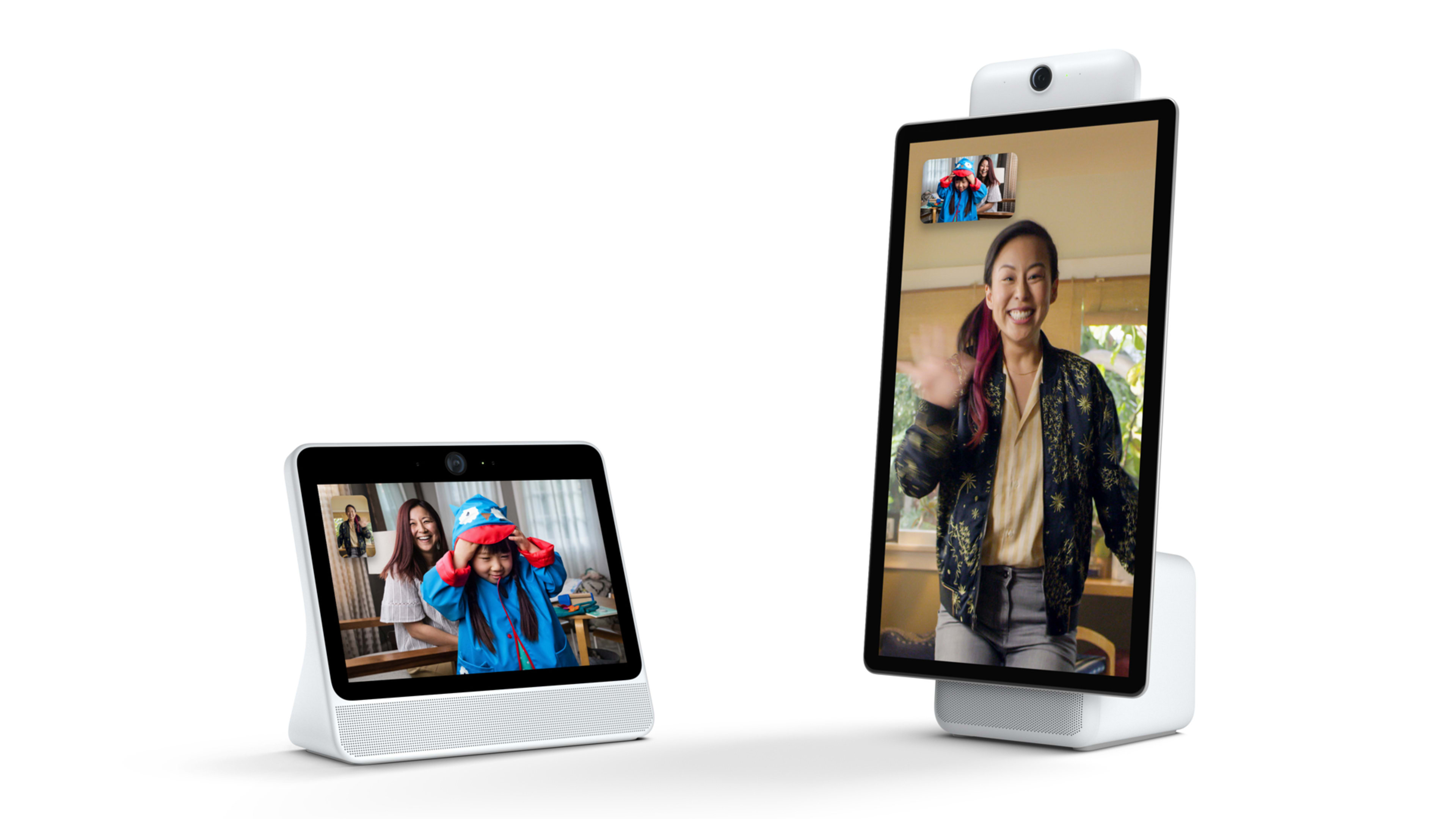The tabletop touch screen lets users chat with Facebook friends through a built-in camera and offers hands-free voice controls. Users can also listen to music and video together in services like Spotify and Facebook Watch, and can narrate “interactive stories” for children. In addition to video chat, Portal can display Facebook photos, and can tap into Amazon’s Alexa voice assistant for even more voice commands. A 10-inch version costs $199, while the 15-inch Portal+ costs $349. Both are available for preorder today and will ship in November.
The idea that users might be creeped out by such a device is not lost on Facebook, which claims that Portal is “private by design.” While the built-in camera can track users around the room, Facebook says the camera does not use face recognition, and the AI that handles the tracking lives on the device instead of on Facebook’s servers. Users also have two ways to cut off the camera: A button on the device “physically disconnects the camera and microphone,” which can’t be re-enabled through software alone, and a separate cover lets users block the camera lens itself. Facebook also says it does not keep or listen to the content of video calls, which are encrypted.
Despite those assurances, potential buyers will have plenty of reasons to treat a Facebook-powered smart speaker and camera with skepticism. The company recently disclosed a major security breach that left at least 50 million accounts vulnerable to a complete takeover, and earlier this year we learned about how political consulting firm Cambridge Analytica was able to harvest account data on up to 87 million users.
Perhaps more importantly, Facebook has a history of misleading users on what it’s doing with their data. A recent report by Gizmodo found that Facebook was targeting users with ads based on contact information gathered from friends’ address books. (Facebook previously denied that it was doing this.) Facebook also confirmed that when a user sets up two-factor authentication with a phone number, the company uses that number for targeted ads. (The only way to avoid this targeting is to use a different authentication method.)
In the end, Facebook’s specific privacy claims about Portal may not be enough to offset the general sense of distrust that the company has engendered over the years. We’ll have to wait and see.
Recognize your brand’s excellence by applying to this year’s Brands That Matter Awards before the early-rate deadline, May 3.
